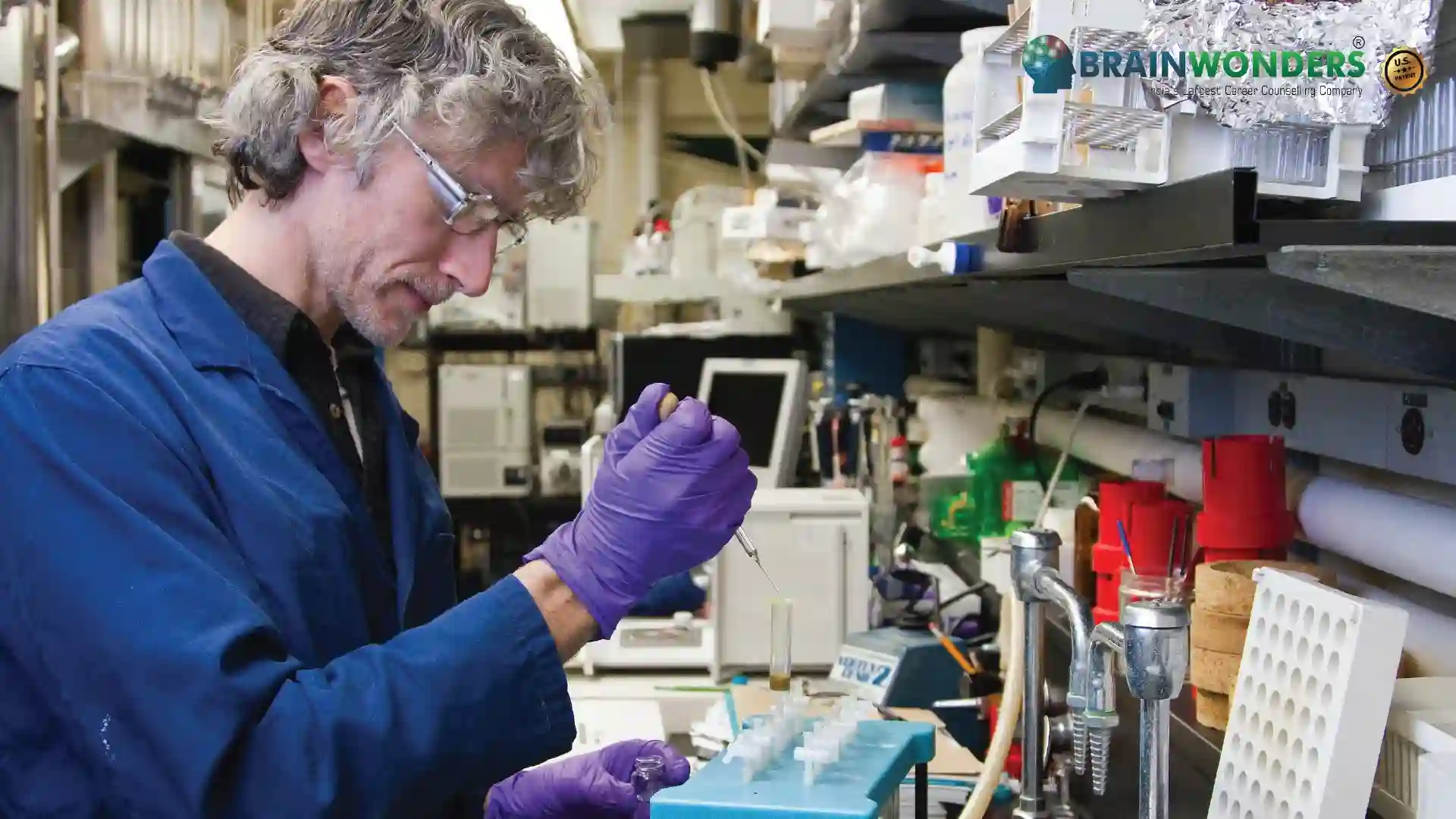How to become an Emergency Medical Technician and Paramedic
Overview, Courses, Exam, Colleges, Pathways, Salary

Overview
Who is Emergency Medical Technician and Paramedic ?
Paramedics are critical in assisting those in need of medical assistance during an emergency circumstance. They get significant training and instruction in medicine, emergency procedures, and medical technology, which enables them to make split-second life-saving judgments and provide urgent assistance to patients on-scene. This may be a career route to pursue if you want to work in the medical industry and serve people in settings outside of hospitals.
Paramedics are highly trained emergency medical professionals that operate mostly outside of hospitals and respond to a range of emergency and urgent medical crises in their assigned areas. They drive ambulances to the site of patients that need quick treatment and care. Once on the site, paramedics provide a variety of treatments to the persons involved. If therapy is inadequate at the present site, they immediately stabilise the patient`s condition and transport them to a hospital.
While transporting patients to the hospital, paramedics call the hospital in advance and offer pertinent information such as the patient`s current health status, drugs taken, and treatments performed before arrival. This enables hospital workers to prepare for the patients` arrival and provide medical care on time. They describe the crisis and treatment methods after the emergency response is complete. A paramedic may perform the following medical services: Emergency childbirth Stabilization of bones and fractures CPR \sResuscitation Stabilization of head and neck injuries Sterilisation and bandaging of wounds Respiratory emergency techniques Treatment of allergic reactions Intravenous fluid infusions Cardiac arrest assistance Administering medication
Typical day at work
What does Emergency Medical Technician and Paramedic do?
- In pre-hospital settings, administer first aid or life-support treatment to sick or injured individuals
- Use devices such as electrocardiograms (EKGs), external defibrillators, or resuscitator bag valve masks in specialized life-support environments
- Throughout ambulance rides, conduct emergency diagnostic and care procedures, such as abdominal suction, airway control, or heart monitoring
- Observe, note, and report the patient's condition or injury, the medication given, and the drug or treatment reactions to the physician
- Determine the nature and severity of illness or injury to develop medical protocols and prioritize them
- Drive mobile intensive care unit to particular venue, following emergency medical dispatcher 's instructions
- Decontaminate interiors of the ambulance after care of contagious patients and report case to relevant authorities
- Deliver medications, orally or by injection, or conduct intravenous procedures under the supervision of a physician
- Immobilize patient for positioning on stretcher and emergency transport, using backboard or other spinal immobilization tool
- Coordinate the job with other EMT/ERT members or police or fire service staff
- Maintain vehicles and medical and communications facilities and restock supplies and first aid equipment
- Communicate with dispatchers or staff at the treatment center to provide situation information, arrange for the receipt of victims, or obtain guidance for further care
- Coordinate with treatment center staff to collect vital statistics and medical records of patients, identify emergency situations, and provide emergency care
- Comfort and reassure patients
- Answer to 911 calls for emergency medical assistance like cardiopulmonary resuscitation (CPR) or bandaging a wound
- Attend certification license training courses, to keep up with new innovations in the field or retain established expertise.
Abilities and Aptitude needed
What are the skills, abilities & aptitude needed to become Emergency Medical Technician and Paramedic?
To treat patients efficiently and calmly, paramedics must possess a variety of medical, practical, and soft skills. The most often necessary abilities of paramedics include the following: Communication To ascertain a patient's medical requirements, paramedics must ask meaningful and clear inquiries. They verbally describe their treatment plan to the patient or their family, as well as to the hospital to which the patient is being transported. Paramedics may also come into contact with patients or family members who are unable to communicate in English, are deaf or blind and must devise strategies for communicating with them.
Keeping your coolness in challenging times Paramedics are trained to respond calmly and composedly to emergency circumstances to deliver the appropriate medical care. Although EMS shifts may be lengthy and paramedics may have little time to relax between emergency calls, they must maintain their composure on each call to give the best possible medical treatment. Medical emergencies may be stressful, and the paramedic must maintain their composure to finish their treatment and assist patients in relaxing. Teamwork Paramedics need cooperation abilities due to their collaboration with other medical professionals such as EMTs and nurses. Oftentimes, the effectiveness of an emergency operation is determined by everyone working in unison. Each member of the team has a specific duty to play, and it is only through their combined efforts that patients may get the necessary emergency treatment. EMTs must be knowledgeable and experienced in delivering basic emergency assistance to people of all ages. They must be confident and prepared to enter any circumstance and support the patient. They must be sensitive, calm, courteous, and patient, as well as sympathetic to the needs and problems of their patients. They must make their patients feel at ease and demonstrate their concern, which needs emotional intelligence.
To deal with a patient's symptoms effectively, they must possess analytical thinking, problem-solving, judgement, and decision-making abilities. They must demonstrate commitment, an eye for detail, tenacity, and perseverance to commit to years of intensive practice. They must be adept at team and time management, as well as possess leadership and multitasking abilities, to care for a variety of patients with varying requirements concurrently. They must be very organised, accountable, adaptable, and watchful. They operate with highly sharp instruments, like syringes, and consequently need physical dexterity, since errors may have fatal effects. They must possess self-discipline, spatial orientation, physical endurance, and dexterity due to the amount of time they spend on their feet.
Pathways
How to become an Emergency Medical Technician and Paramedic?
Entrance Exam
Entrance Exam for Emergency Medical Technician and Paramedic ?
Courses
Which course I can pursue?
Best Colleges
Which are the best colleges to attend to become an Emergency Medical Technician and Paramedic?
Industries
Which Industries are open for Emergency Medical Technician and Paramedic?
internship
Are there internships available for Emergency Medical Technician and Paramedic?
Career outlook
What does the future look like for Emergency Medical Technician and Paramedic?
With more training, certification, and experience, an EMT-Basic may graduate to become a Complex EMT, also known as an EMT-Intermediate. Advanced EMTs are familiar with more advanced medical procedures such as IV fluid and drug administration. With time, one climbs the ladder to become a Paramedic, who provides more comprehensive pre-hospital care, administers drugs orally and intravenously, interprets electrocardiograms (EKGs), and is proficient in the use of various monitors and complicated equipment. EMTs work in both public and private hospitals on a full-time basis. Because their shifts rotate between day and night, their working hours may be erratic at times, necessitating overtime or emergency posting in the event of an emergency. They are effective both inside and out. Their jobs may be demanding since they often deal with life-or-death circumstances.
Certain paramedics act as members of the flight crew of a helicopter or aircraft, transporting severely sick or wounded patients to a hospital. Additionally, one may work for fire departments or the military. Individuals with the proper credentials may advance to various relevant health care careers such as physician assistants and medical assistants, as well as administrative roles. There are prospects for advancement into more senior paramedic posts with more responsibility with experience and further training. You`ll have your area of responsibility and the ability to make additional treatment choices, allowing you to treat certain patients on the site of the emergency. As a senior paramedic, you may work as an emergency care practitioner (ECP) in one of the following locations: Community hospitals primary care practises health centres hospitals accident and emergency rooms and minor injury units Additionally, with additional training in critical care and trauma, it is possible to advance to the senior job of a critical care paramedic.
Specialist employment with a motorcycle, quick response automobile, or air ambulance (helicopter) units is available in certain regions. Additionally, with sufficient experience and training, there are potential to advance into management positions such as operational manager, assistant director of operations, or a senior position in the control room. You may opt to pursue related employment in healthcare, such as nursing, or non-clinical positions such as NHS trust management and administration, training and development, or health and safety. Typically, further training and certification are required. Careers in other uniformed services, such as the armed forces, police, or fire department, as well as lecture positions on paramedic science courses, are other possibilities.




.webp)


